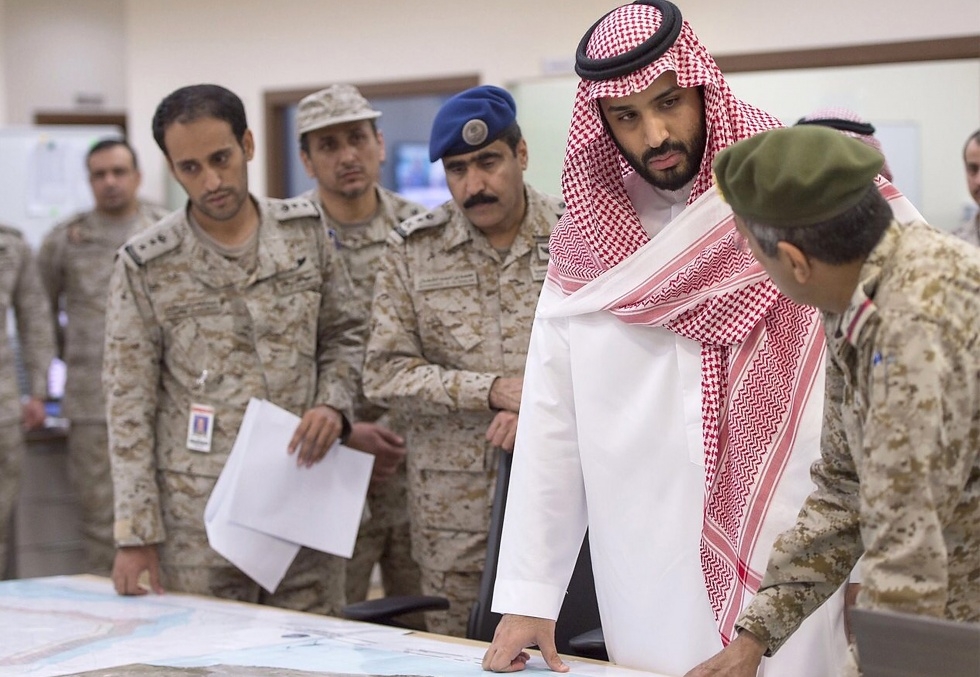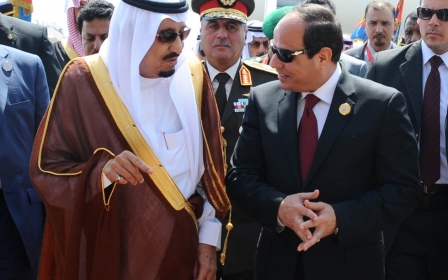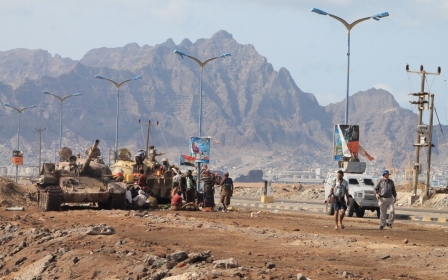Saudi’s young pretender failing at war, leaving Yemen in tatters

It was by anybody’s measure an extraordinary week in the House of Saud: the defenestration of Crown Prince Muqhrin replaced by the Interior Minister Mohammed bin Nayef and King Salman’s son Mohammed bin Salman named deputy crown prince.
The lineage landscape has been forever altered. No more will a ruler come from the sons of the founding king. Succession has passed to the next generation. And the consolidation of power between two ambitious princes - the older, thoughtful Mohammed bin Nayef and the young and aggressive Mohammed bin Salman - presided over by an aged and ailing king, has set the stage for further behind-the-scenes manoeuvres while giving the impression of surface calm.
So a border skirmish between Saudi forces and tribes loyal to the Houthis may seem something of a minor footnote. The Saudi interior ministry reported that three officers died and two were wounded by a mortar shell that struck a border post in the province of Najran. The Saudis also claim that dozens of Houthis were killed in the ensuing action, a claim that has not yet been verified.
But could this isolated action be the start of something bigger by the Houthis? If so, it will be a case of history repeating itself. In 2009 the Houthis penetrated more than 50 kilometres into Saudi territory, seized and held the city of Jizan for several days and only left after a substantial amount of money was paid them, eloquent testament to the incompetence and lack of battle readiness of the Saudi military.
Saad al-Faqih, a conservative critic of the House of Saud who lives in exile in London, calls that 2009 Houthis invasion an example of “escaping forward”. The Houthis then as now were being heavily bombed from the air. The push into Saudi territory ended the bombing campaign and the money paid out to the Houthis to leave Jizan worked to save Saudi blushes.
“The skirmishes are the prelude to a larger offensive,” al Faqih argues. “There is one story in the air where the Saudis and their allies have complete supremacy, and another on the ground. On the Saudi side the troops are quite weak.”
Al-Faqih mocked Saudi television accounts showing people in the border region giving what he said were tents, food and cash to the army. “Can you imagine a general in the British army receiving gifts like that? This is not an army, this is a joke.”
He says that Mohammed bin Salman who is leading the war against the Houthis will never commit ground troops to the conflict, knowing full well that his soldiers would come out second best against hardened Houthi fighters. That would cause embarrassment and a huge setback for an ambitious young man who is in a hurry to establish his credentials. The air campaign launched in March had seemed a quick way to do so.
But after more than a month and thousands of sorties, the Houthis still retain the capital Sanaa and have not been pushed out of the crucial southern seaport of Aden. They continue to besiege other towns and cities in the south. Meanwhile the Saudis are suffering reputational damage as they destroy the infrastructure of a deeply impoverished country.
The latest public relations gaffe was the bombing of a runway at Sanaa International Airport, already heavily damaged by repeated airstrikes. The Saudis say it was to prevent an Iranian plane from landing. The Iranians say the plane was carrying humanitarian aid, not weapons as the Saudis claim. And most independent analysts accept the Iranian version. But what is not in any dispute at all is the fact that the sortie crippled the flow of aid, in what is clearly becoming a huge humanitarian crisis.
And while the Americans continue to supply logistical support – Faqih claims they are “running the war ops room” – they are increasingly uneasy about the absence of a Saudi exit strategy. Because if history teaches anything in Yemen, it is that the Houthis will not be bombed to the negotiating table. And should Mohammed bin Salman continue along his reckless path, the Houthis may indeed seize the opportunity to “escape forward” and push into Saudi territory in order to force his hand and halt the aerial campaign.
At that point the outwardly harmonious relationship between the two Mohammeds would become strained. Mohammed bin Nayef is widely respected both within the Saudi ruling family and in Washington as an intelligent, shrewd and careful politician. The same cannot be said for Mohammed bin Salman. He has staked much on his Yemen adventure and should it, as appears likely, fail, no one really knows how this headstrong young man will react.
And while that drama, with its heavy Shakespearian overtones, plays itself out in Riyadh, the people of Yemen continue to suffer, with food supplies impacted by a naval blockade and drinking water becoming scarce. They are being bombed from the air by the Saudis and their allies and shelled on the ground, caught between the Houthis and the tribes and remnants of the Yemeni army fighting against them. And as if that was not enough, they are faced with the resurgent presence of Al Qaeda – this is the real tragedy unfolding as the House of Saud jousts.
- Bill Law is a Sony award-winning journalist. He joined the BBC in 1995 and since 2002 has reported extensively from the Middle East. He has travelled to the Kingdom of Saudi Arabia many times. In 2003 he was one of the first journalists to cover the beginnings of the insurgency that engulfed Iraq. His documentary The Gulf: Armed & Dangerous which aired in late 2010 anticipated the revolutions that became the Arab Spring. He now works as a freelance journalist focusing on the Gulf.
The views expressed in this article belong to the author and do not necessarily reflect the editorial policy of Middle East Eye.
Photo credit: Saudi Defence Minister Mohammed bin Salman bin Abdul Aziz (2nd R) meeting with Saudi air forces officers (AFP)
New MEE newsletter: Jerusalem Dispatch
Sign up to get the latest insights and analysis on Israel-Palestine, alongside Turkey Unpacked and other MEE newsletters
Middle East Eye delivers independent and unrivalled coverage and analysis of the Middle East, North Africa and beyond. To learn more about republishing this content and the associated fees, please fill out this form. More about MEE can be found here.





